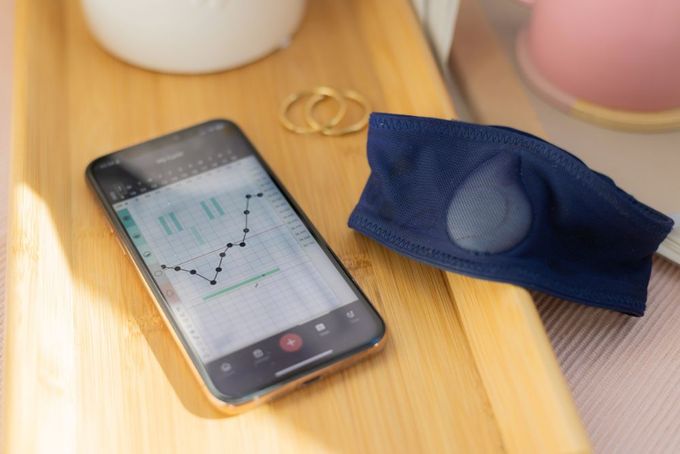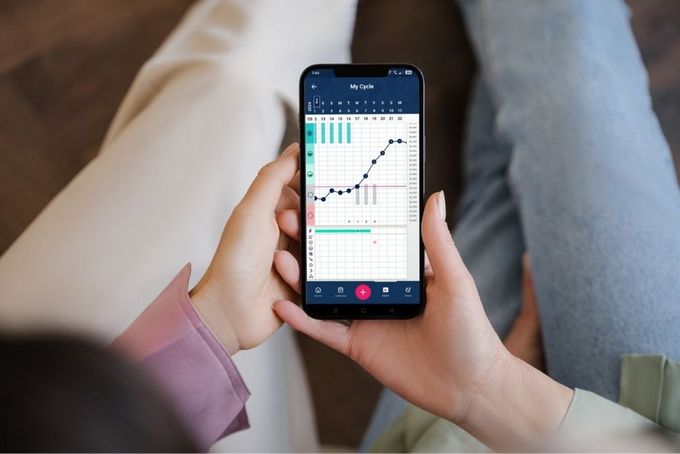5 Tips for Tracking Your Cycle When You Have PCOS
Updated June 11, 2025

Tracking your cycle when you have polycystic ovary syndrome (PCOS) can be really difficult. While it can be difficult to interpret PCOS charts because they tend to be drawn out, our customers also note that it's emotionally difficult.
So today we have 5 tips to help you be successful in your charting efforts if you have PCOS.
1. Don't check your temperature every day
That doesn't mean don't take your temperature every day - that's still incredibly important. But especially with long cycles, it's easy to get hung up on one temperature being out of range, getting your hopes up, and then being disappointed. With Tempdrop, you can sync your temperature without looking at the actual result each time. Sync every day, but check 2-3 times a week to see if you've had a change in the overall trend or pattern of your temperatures. You'll be surprised at how much stress it removes!
2. Give your partner the job of syncing your Tempdrop
That's right! It's okay to ask your partner to sync your Tempdrop for you if you're having a hard time not comparing temps every day. They can sync it on your phone or theirs - theirs will just make it even less accessible to you! Then set a plan to check it 2-3 times per week for overall trends.
3. Remember the goal
Sometimes it's hard and we get caught up in the minuscule details, but remember you're gathering data for informational purposes. It's to help you know where your body is at. Many who are making lifestyle changes to help their PCOS are also charting to see if and how those changes are helping! The data is just a marker to let you know where you are. And when you finally do ovulate, you'll know when to expect your period or start taking pregnancy tests, depending on your intentions.
4. Don't force the chart
This is something everyone is prone to doing - seeing just what we want to see. In charting, this means don't force the chart to show you what you want it to show you. Remember that the chart as a whole will give you the most useful information.
5. Don't compare your chart to other peoples charts
This one is particularly important. Whether you're comparing against someone who does or doesn't have PCOS, just try to refrain from comparing your chart at all! You are in a different place than everyone else. Also be careful comparing your chart to your own past charts. You are also in a different place than you were two months or even two years ago. It can be useful to keep track of your cycles to see how changes you're making are affecting them, but don't get caught up in it.
Other Tempdrop articles about PCOS
- PCOS GUIDE: How to speak to your doctor
- PCOS Guide for Clinicians
- PCOS: Understand your cycle and how to get pregnant
- What are the benefits of Tracking Ovulation when you have PCOS
- Simple, Effective Nutrition Tips for People with PCOS
- Surprisingly Easy Tips for Trying to Conceive with PCOS
- 5 Unusual Signs & Symptoms of PCOS You Should Look Out For
- Food & PCOS: What to Avoid and What to Enjoy Guilt-Free
- Endometriosis vs. PCOS: Understanding the Impact on Fertility







